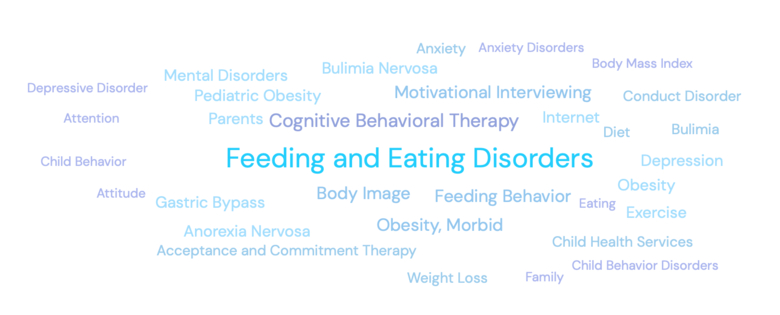
Clinical Psychology: Etiology, prevention, and treatment of eating disorders
Clinical psychology can be described as a field within psychology characterized by integration of science and clinical practice for understanding the emergence of psychological problems as well as effective ways of preventing and treating these conditions. Psychological assessment and treatment are at the heart of clinical psychology.
Understanding, prevention and treatment of eating disorders (e.g., anorexia nervosa, bulimia nervosa, and binge eating disorders) is the core research area within our group. Examples of studies within this subject area are: prospective studies of the risk factors for the development of eating disorders (ED) among children, adolescents, and adults; effective ways of preventing emergence of ED or disordered eating; development, testing and enhancing psychological treatment for eating disorders; and improving access to efficacious treatments.
Examples of related themes that we study are: A) the basic mechanisms (perception and cognition) involved in normal as well as abnormal body-image, B) body image dissatisfaction and its treatment using imagery and other approaches, C) eating disorders and obesity surgery, D) detection and treatment of eating disorders within primary care, E) barriers to seeking treatment for eating disorders, and F) prevention of obesity.
Research projects
- Prevention of eating disorders through optimization of protective factors such as self-compassion, intuitive eating, acceptance, etc.
- Eating disorders among males and sexual minorities
- The role of focused attention on details for the perception of size and shape
- Imagery rescripting for the treatment of body dissatisfaction
- Disturbed eating, mental health problems, physical health problems in athletes.
- Non-Accidental Violence in sport, links to disturbed eating and other health problems.
A few examples of collaboration with other research groups:
- The role of emotion regulation in the treatment of eating disorders
- Comprehensive risk evaluation for anorexia nervosa in twins (CREAT)
- Guided self-help CBT for eating disorders within routine care
- Prevention of depression and anxiety among school aged children
- The role of metacognition in the acquisition of skills in cognitive-behavioral therapy
- Navigator ACT for parents of children with disabilities
- Transforming Obesity Prevention for CHILDren (TOPCHILD) Collaboration
- SUN: the Sustainable UNiversity life study. A cohort study of risk factors for mental health problems and pain in university students.
